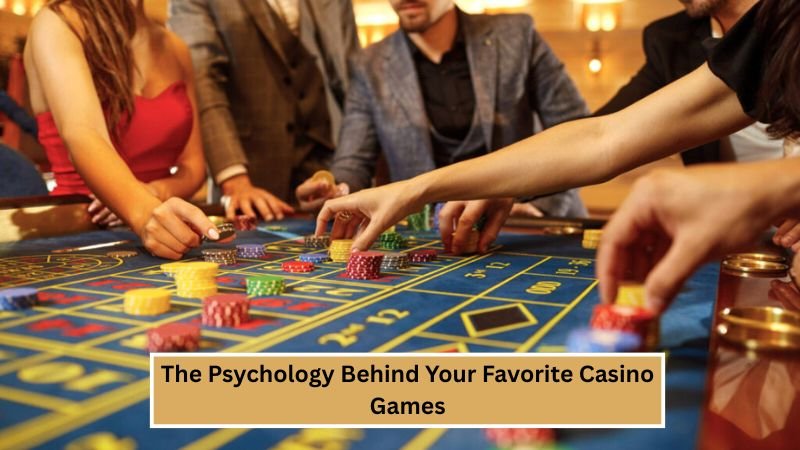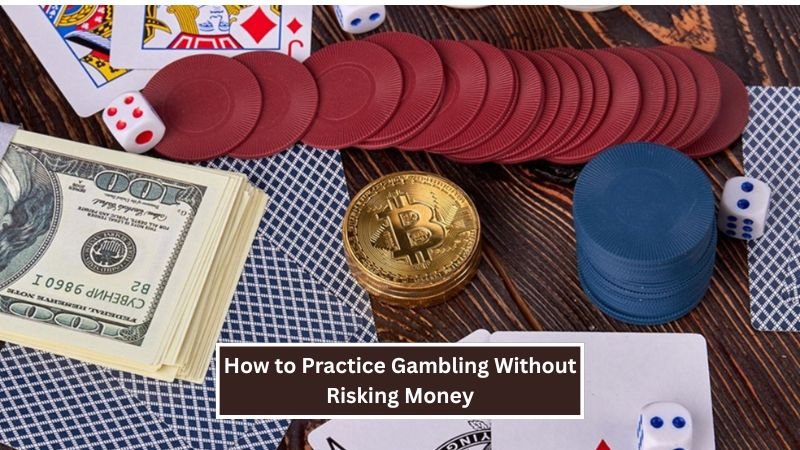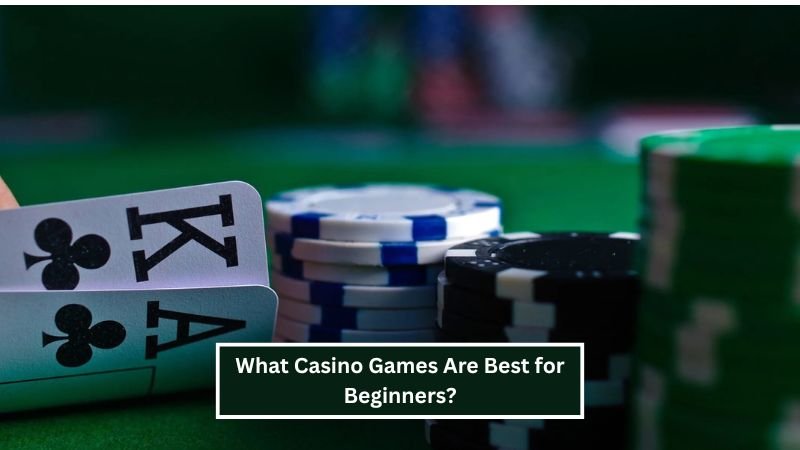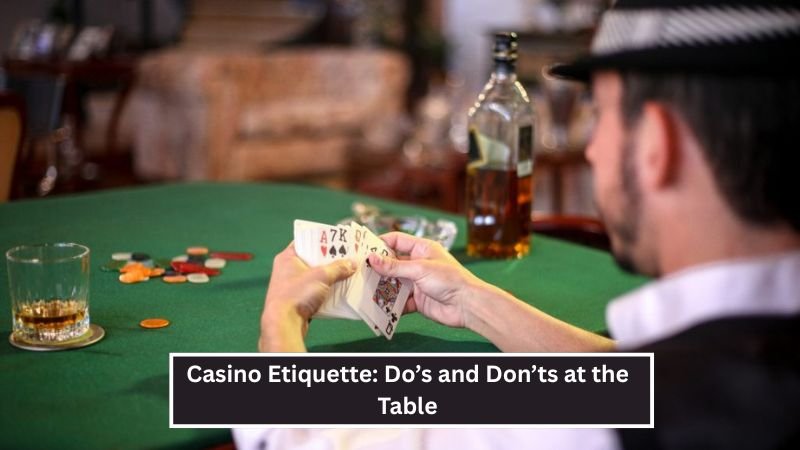
Casino games are not just games of luck and chance. Behind every slot machine spin, roulette wheel turn, or hand of blackjack, there lies a deeply rooted psychological design aimed at keeping players engaged, entertained, and often coming back for more. While the glittering lights and loud sounds of a casino create a compelling atmosphere, the real magic happens inside the human brain.
From the way games are structured to how rewards are delivered, casinos use a variety of psychological tactics that tap into our emotions, desires, and even our biology. Understanding this psychology not only helps us become smarter players but also reveals why certain games are more addictive or appealing than others.
Let’s explore the fascinating world of casino psychology and discover what really makes your favorite games so hard to resist.
The Reward System and Dopamine: Why We Get Hooked
One of the most important psychological triggers in gambling is the release of dopamine, a chemical in the brain associated with pleasure and reward. Dopamine is released not only when we win, but also in anticipation of a win. This is particularly powerful in games like slots or roulette, where outcomes are unpredictable.
The brain’s reward system is wired to respond to risk and uncertainty. This is why games with variable outcomes, even when losses are frequent, can still be incredibly engaging. Every spin or card draw offers the possibility of a big win, and that sense of anticipation is what fuels the dopamine response.
Slot machines, in particular, are masters at exploiting this mechanism. The bright visuals, sound effects, and near-miss outcomes all work together to keep the player’s brain in a heightened state of excitement and expectation.
Variable Reinforcement Schedules: The Power of Unpredictable Rewards
One of the strongest psychological principles used in casino games is the variable ratio reinforcement schedule. This concept, rooted in behavioral psychology, means that rewards are given out at unpredictable intervals. In simple terms, you never know when you’re going to win, but you know a win could happen at any time.
Slot machines are the perfect example of this. Players pull the lever or press a button repeatedly, and wins come at random. This randomness is more addictive than regular or predictable rewards. It’s the same principle that keeps people scrolling on social media or checking their phones for messages.
This unpredictability taps into our instinctive desire to chase the next win, encouraging prolonged play even in the face of repeated losses.
Illusion of Control: Feeling in Charge When You’re Not
The illusion of control is another key psychological element in many casino games. People are more likely to engage with a game if they feel like their actions influence the outcome, even when the game is largely based on chance.
In games like blackjack or poker, players make decisions that can impact the outcome. This creates a sense of control and mastery, which makes the games more engaging. Even in slot machines, where outcomes are random, features like “hold” or “nudge” buttons give the player the impression that they are influencing results.
This perceived control boosts confidence and can increase the time and money spent on a game. Players often believe they can develop strategies for games of chance, which adds an extra layer of psychological commitment.
Near Misses: So Close, Yet So Far
Few psychological tricks are as powerful in gambling as the near miss. A near miss occurs when a player comes very close to winning, such as getting two jackpot symbols on a slot machine and just missing the third. Studies show that near misses activate the same areas of the brain that respond to actual wins.
These near misses keep players motivated, triggering the reward centers in the brain and making them more likely to continue playing. This is especially true in slot machines, where near-miss scenarios are often engineered into the game design to increase engagement.
The message is simple: “You almost won – try again.” This subtle psychological nudge can be incredibly effective in keeping players hooked.
The Role of Sound and Visual Design
Casino games are carefully designed to create a multi-sensory experience that stimulates the brain. Bright lights, flashing animations, and catchy sound effects all serve to enhance the overall experience and trigger emotional responses.
Slot machines use celebratory sounds and flashing graphics even for small wins, creating the illusion of a big success. The use of upbeat music, coin clinking sounds, and applause can give players the feeling of accomplishment, even when their win is less than their total wager.
This sensory stimulation encourages longer play sessions and makes the environment more immersive and entertaining.
Social Proof and Group Psychology
Casinos often rely on social psychology to keep players engaged. The sight of other people winning, hearing applause or jackpot celebrations, and watching others gather around a table can influence our behavior.
When we see someone winning at a slot machine or cheering at a craps table, we’re more likely to join in. This phenomenon is called social proof – the idea that if others are doing it, it must be a good idea.
Live dealer games and group games like poker also enhance this effect by making the experience communal. Interaction with other players adds a social element that increases enjoyment and can encourage competitive behavior.
Game Personalization and Loyalty Programs
Modern online casinos use data analytics and personalization to create tailored gaming experiences. By tracking player behavior, casinos can recommend specific games, offer bonuses, and send personalized promotions.
This kind of personal attention makes players feel valued and important, which increases loyalty and time spent on the platform. Loyalty programs also use psychological incentives, like tiered rewards and point accumulation, to keep players engaged.
The psychology behind these programs is similar to gamification in mobile apps – players are encouraged to “level up” and unlock new benefits, keeping them invested in the long term.
Loss Aversion and the Sunk Cost Fallacy
Loss aversion refers to the psychological concept that losing feels worse than winning feels good. In gambling, this means that players are often more motivated to recover losses than they are to win additional money.
This often leads to what’s known as chasing losses – continuing to gamble in the hopes of making back what was lost. Unfortunately, this behavior can spiral into further losses, especially when combined with the sunk cost fallacy – the belief that because time or money has already been invested, it’s worth continuing.
Casino games are designed in a way that subtly encourages these thought patterns. The idea that a win is just around the corner can keep players engaged even when they are experiencing a losing streak.
The Role of Time Perception
Casinos, especially physical ones, are notorious for removing cues that help people track time. There are no clocks, no windows, and often no natural lighting. This manipulation of the environment plays a crucial psychological role in distorting time perception.
When engrossed in a game, especially one with frequent small wins or high-paced action, players can lose track of time. Hours can feel like minutes, which leads to longer gaming sessions and more money spent.
Online casinos use similar tactics with continuous play features and autoplay options that make it easy to stay engaged for long periods without noticing how much time has passed.
Why We Prefer Certain Games Over Others
Each casino game appeals to different psychological preferences and personality types.
- Slot machines appeal to those who enjoy passive play and instant rewards with minimal effort.
- Blackjack and poker attract players who enjoy strategy, skill, and the illusion of control.
- Roulette and craps offer high social energy and appeal to thrill-seekers who enjoy fast-paced games.
- Baccarat is favored by high rollers who enjoy simplicity, elegance, and betting big.
Our choice of games often reflects our risk tolerance, emotional state, and even how much social interaction we seek.
Conclusion: Knowing the Game Inside Out
The psychology behind casino games is a complex web of behavioral cues, emotional triggers, and neurological responses. Every element, from sounds to colors to reward systems, is carefully engineered to keep players engaged and spending.
While understanding the psychology can’t guarantee wins, it can certainly make you a more informed and mindful player. Recognizing the techniques at play helps you maintain control over your gambling behavior and appreciate the games for what they are – entertainment with a powerful psychological twist.
As long as you approach casino gaming with awareness and balance, the experience can remain enjoyable and responsible. The key is to play smart, know your limits, and remember that the house always has an edge.
If you’re fascinated by how your mind interacts with games of chance, then studying the psychology behind casino gaming might be just as thrilling as hitting that jackpot.





